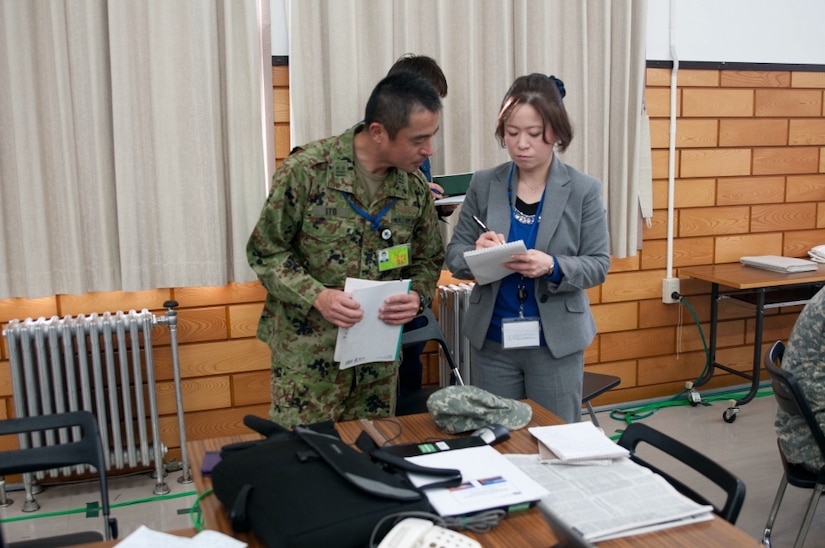Aug. 24, 2020 | , DOD News
From national security missions to disaster relief to COVID-19 testing, the right interpreter is vital to getting the message out in a way that can be understood.
The National Language Service Corps is a Defense Department entity that provides the federal government with workers whose primary mission is to promote understanding — literally.

Since March, NLSC interpreters have been called on by the White House Coronavirus Task Force and Federal Emergency Management Agency community-based testing sites to interpret virus-related questions for people whose first language is not English.
Some 500-plus languages and dialects are offered by more than 10,000 NLSC interpreters. The top-three requested languages for FEMA's COVID-19 response are Spanish, Vietnamese and Arabic, an NLSC official said.
When a person who isn't English-proficient arrives at a FEMA-established COVID-19 testing site, a call goes out to an NLSC hotline that has an interpreter standing by for the specific language.

These specialists are by the phone, ready to engage with the person who has limited English proficiency, the official said. "They're able to say, 'OK, here's the menu of languages that are available for you to get interpretation support.'" It's about making sure there's clear communication between the health care providers and the people being tested, the official added.
Eric Heuberger is one of about 70 NLSC interpreters assigned exclusively to pandemic work. He is in Brooklyn, New York, interpreting Spanish over the phone for FEMA's citywide system of COVID-19 testing sites. If Spanish-speaking people have questions about the virus or testing procedures, Heuberger is the one they ask and he translates for health care workers and for those being tested. In addition to health care settings; he also is involved with interpreting for educators.

"In New York, what we've seen is that the poor people are in the more crowded living circumstances, and they are more likely to get infected," Heuberger said. "So, where people are being infected is within their living spaces, and there's not much they can do about it."
"We anticipate that [the virus] is going to be here for a little bit. So we're going to be ready to support in whatever capacity is needed," the NLSC official said.








No comments:
Post a Comment